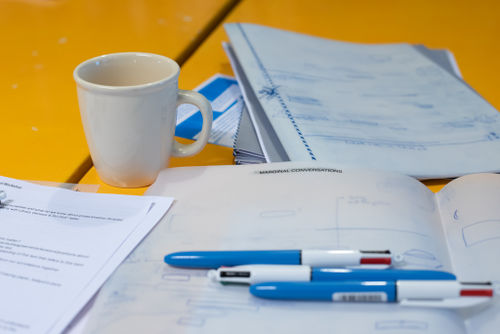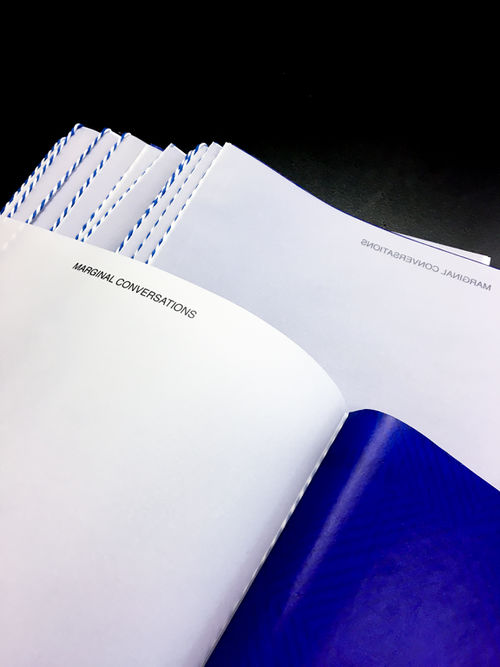Marginal conversations
The Workshop
Annotation pack
Workshop Rehearsal in PZI
Annotation traces from PZI rehearsal
Workshop plan - final draft
INTRODUCTION (5min)
Meet each other: have a quick round of saying something about ourselves and what do we know about pirate/shadow libraries. Short description of the steps of the workshop and let people know we'll be recording.
Overview of what happens in this workshop in one sentence:
1st part: Reading/Annotating, heatmap
2nd part: Discussion, Rehearsal of Performative reading and recording of performance.
Topic: pirate libraries - topic of special Issue 9
Text: "In solidarity with Library Genesis & Sci-Hub" letter
Aim: 2-3 sentences of what is the aim of this workshop. Why this collective reading-conversations matter?
- We see "annotations" as a way to express our understandings/questions/comments/disagreements/ tensions/positions about what we read. So we can discuss about it and form a collective understanding of the text. Our aims are to:
- open up a conversation about pirate libraries, through a deeper collective understanding of a specific text that refers to this topic (enrichment comes through collectively reading and annotating the text)
- develop ways in which texts can become conversations through annotating together
- make public what we have learned about pirate libraries and annotation, and to reflect on the public's response(s)
STEP 1: Reading/Annotating (15min)
Materials: "In Support of Library Genesis & Sci-Hub" English language letter (on A3 spread), A3 tracing paper, ballpoint pens (annotation pack)
Participants: Individual
Archiving step: collect tracing paper, carbon paper
- We provide the solidarity letter in an A3 pack
- Read the text individually
- Annotate the text on your english. (It will be traced through carbon paper to the tracing paper underneath.)
STEP 2: Heatmap and discussion through the annotations (20min)
Materials: Same as Step 1
Participants: Whole group
Archiving step: Photographs of annotated texts, discussion
- Create a "heatmap" of the text by placing tracing papers with annotations on top of each other, showing which areas are interesting/remarkable to others.
- We can focus in the most "annotated", thus "active", "interesting", "relevant" parts of the text. At the end of the heatmap stage we introduce the discussion by identifying common areas of annotation, and also listing things that need further definition. Why did you annotate this part? What is the "global north"? etc.
- Comment generally on the text, what was interesting? Did you make sense? Are there specific parts you want to discuss?
- Conclusions? Comments? Discuss the most commented.
- Discuss this experience and anything we want to discuss about pirate libraries, this text, our experiences.
- Collectively determine strategies to "amplify" specific parts of the texts that either
a) we all agree on
b) we don't understand
c) disagree on
d) we want to develop further
e) think are worth repeating/recording
STEP 3: Performative reading (20min)
Participants: All together (if more than 10, divide into two groups???)
Materials: Annotated "In Support of Library Genesis & Sci-Hub" letter, audio recording device (ZOOM rented from WdKA shop/smartphone), (maybe speakers?)
Archiving step: Voice recording
- Introduce by saying: "We are going to read aloud the text in turns, while also performing our annotations. Try to perform your comment to make your position/understanding of the text clear. If you have an annotation, please do or say something (e.g. interrupt, raise your hand, make a noise, use an accent, use intonation to convey emotion etc)."
The text becomes a "play", a performance, a discussion between us
- The purpose is to activate a text, by transforming it into a conversation through spoken annotation
- This reading will be recorded (ask)
- Decide on an "interesting" way of performing and record that. It could be more than one language in this audio piece.
OUTPUT:
At Leeszaal:
- Play the collective recording from speakers placed in shelves at Leeszaal (Bluetooth)
Later:
- Printed version with the overlaping of individual comments - heatmap - pocket version???
- Printed URL on annotated tracing paper to direct readers to the online versions of the texts?
- Bookmark or some object (it can be the pocket version) to introduce it in some books in Leeszaal, understanding that as a way to spread the letter (like sowing seeds)
PDF ARCHIVE
File:Scanannotations.pdf
File:Tracingpaper.pdf
File:Englishletter.pdf.pdf
File:Annotation pack.pdf




































